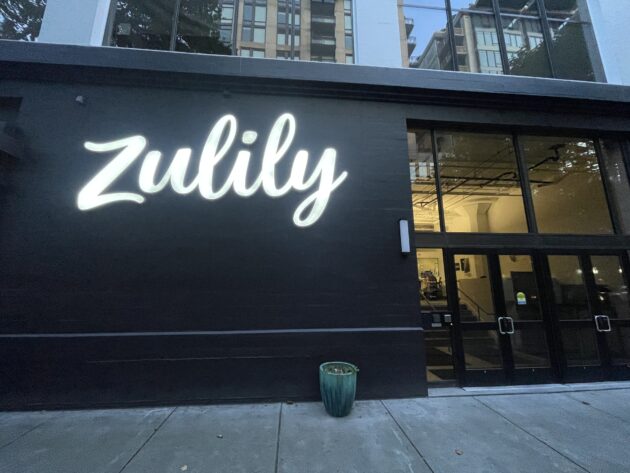
CNBC no longer produces The Profit. But Marcus Lemonis is still trying to turn around businesses.
Lemonis, who starred on the reality show for eight years, recently became executive chairman of Beyond — the company that just paid $4.5 million to acquire the assets of embattled online retailer Zulily.
In an interview with GeekWire on Thursday, Lemonis said he hopes to spark some of the secret sauce that helped Zulily blossom in its early days as a flash sales leader that focused on women and moms.
“The flash sale, get-it-before-it-runs-out model — that’s how it will be rebirthed,” he said.
Lemonis became famous for helping failing small businesses when he starred on The Profit, which aired for eight seasons from 2013 to 2021. In the episodes, Lemonis tried to fix everything from ice cream shops to shoe brands.
Now he’ll try to do the same with Zulily, after the company’s surprising and sudden collapse last year.
The company got its start in Seattle more than a decade ago and grew quickly with a unique e-commerce model that featured a limited number of daily deals. Zulily was valued at more than $4 billion when it went public in 2013.

QVC parent Qurate acquired the company for $2.4 billion in 2015 and later expanded its product catalog. But the company continued to struggle amid competition from Amazon and fast fashion e-commerce players from China, among other factors.
Qurate sold Zulily to a private equity firm called Regent in May of last year. Regent said it planned to grow the company in new markets. But it ended up laying off most of Zulily’s workforce and put the company in liquidation in December.
“The rise and fall of Zulily is not a function of the people that work there,” Lemonis said. “It’s a function of the people that own it and passing it around like it’s a hot potato.”
He added: “The way the thing closed down was pretty horrific.”
Lemonis said Zulily was an attractive acquisition target because it can help boost Beyond’s revenue without taking on much risk, using an asset-light model.
It’s also a sizable business that generated around $900 million in revenue in 2023, according to Lemonis. There’s the existing back-end infrastructure — website, mobile app, Shopify integration — that makes it easier to get Zulily up and running by the end of May. And there’s a built-in customer base with 18 million people who registered as buyers over the past two years.
“We’re buying more than the brand,” said Lemonis.
Bed Bath & Beyond, the longtime chain retailer that specialized in housewares, filed for Chapter 11 bankruptcy last year. Overstock, founded in 1997 as a surplus merchandise seller, acquired its intellectual property for $21.5 million in June and rebranded to Beyond.
Beyond, which reported $1.6 billion in sales last year, is aiming to be a leader in home-related products and services. Lemonis said Zulily’s new tagline — “the only purple that saves you money” — was a hint at how he wants to compete against Wayfair, the purple-branded e-commerce giant.
Lemonis is bullish about Zulily’s original focus on women and new moms, but also expects the retailer to focus on other product categories such as kitchen or lifestyle.
“My goal is to capture all the life events in everybody’s household,” he said.
Lemonis also hopes the acquisition of Zulily will attract vendors into the Beyond universe, providing different pathways to sell products. And he plans to streamline supply chain expenses by trimming “middle costs that just eat into margin.”
A small group of Zulily employees remained at the company through the liquidation process. Beyond does not have current plans to bring on employees or keep an office in Seattle, Lemonis said.
Lemonis was born in Lebanon and adopted by a couple living in Miami when he was nine months old. He ran for office in Florida after graduating from Marquette University and then got into automotive sales. Lemonis later became CEO of RV retailer Camping World, which he still runs.
Lemonis said when he stood inside of the Overstock headquarters recently, it felt like “a giant episode of The Profit.”
“The same things that I did [on the show] are the same things that I’m doing,” he said. “The pace is fast, the attention to detail is high, and the tolerance for bullshit is low.”

